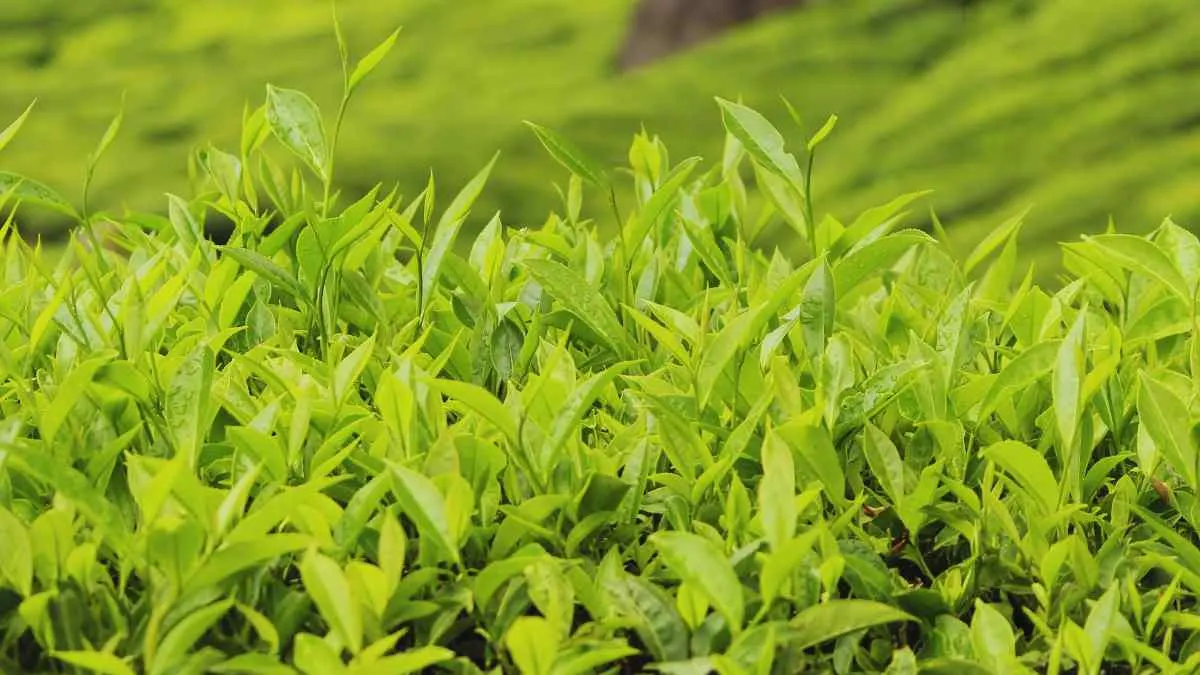The tea tree, Melaleuca alternifolia, is an evergreen shrub native to the coastal regions of New South Wales and Queensland in Australia.
Renowned for its essential oil, tea tree oil, this plant has been utilized for centuries due to its remarkable medicinal properties.
Origins and Historical Significance:

The indigenous Bundjalung people of northeastern New South Wales were among the first to recognize the medicinal value of the tea tree.
They crushed the leaves to release the oil, using it to treat coughs, colds, and skin ailments. These practices were passed down through generations and form a cornerstone of Aboriginal bush medicine.
The term “tea tree” was coined by Captain James Cook during his 1770 voyage to Australia. Upon discovering the plant, he and his crew brewed an infusion from the leaves as a substitute for tea, leading to the plant’s enduring name.
In the 1920s, Australian chemist Arthur Penfold conducted research on various native oils, identifying tea tree oil’s potent antimicrobial properties.
This discovery paved the way for its commercial use in antiseptic products. During World War II, tea tree oil was included in the first aid kits of Australian soldiers, underscoring its importance in medical applications.
Composition and Extraction:
Tea tree oil is extracted through steam distillation from the leaves of Melaleuca alternifolia.
The oil’s primary active compound is terpinen-4-ol, comprising 30–40% of its composition. Other constituents include γ-terpinene, α-terpinene, and 1,8-cineole.
These compounds contribute to the oil’s characteristic camphoraceous aroma and its therapeutic properties.
Uses and Benefits:
1. Skin Care
Tea tree oil is widely recognized for its ability to treat various skin conditions. Its antimicrobial properties make it effective against acne, fungal infections, and minor cuts.
A study published in the Medical Journal of Australia found that a 5% tea tree oil gel was as effective as benzoyl peroxide in treating acne, with fewer side effects Encyclopedia Britannica.
2. Hair and Scalp Health
In hair care, tea tree oil helps maintain a healthy scalp by reducing dandruff and soothing irritation. Its antifungal and antibacterial properties can alleviate conditions like seborrheic dermatitis and scalp acne.
Additionally, tea tree oil can unclog hair follicles, promoting healthier hair growth Health.
3. Household Cleaning
Due to its antiseptic qualities, tea tree oil is an effective natural cleaner. It can disinfect surfaces, eliminate mold, and serve as a deodorizer.
When combined with other natural ingredients like vinegar or baking soda, tea tree oil enhances the efficacy of homemade cleaning solutions The Spruce.
4. Insect Repellent
Tea tree oil acts as a deterrent against various insects, including mosquitoes and lice. Its insecticidal properties can kill lice within 30 minutes, making it a valuable tool for preventing and treating infestations The Sun.
Recommended: Milk Tea | Types, Benefits, and How to Make It
Safety and Precautions:
While tea tree oil offers numerous benefits, it must be used with caution:
-
Topical Use: Always dilute tea tree oil with a carrier oil (e.g., coconut or jojoba oil) before applying it to the skin to prevent irritation.
-
Ingestion: Never ingest tea tree oil. Ingesting even small amounts can lead to serious side effects, including confusion, drowsiness, and muscle weakness Mayo Clinic.
-
Children and Pets: Keep tea tree oil out of reach of children and pets, as it can be toxic if ingested or applied improperly.
-
Allergic Reactions: Conduct a patch test before widespread use to check for allergic reactions.
Common Questions:
Q1: Can tea tree oil help with dandruff?
Yes, tea tree oil’s antifungal properties can reduce dandruff by targeting the yeast responsible for flaking. A study found that a 5% tea tree oil shampoo improved symptoms in individuals with dandruff Mayo Clinic.
Q2: Is tea tree oil safe for acne treatment?
Tea tree oil can be effective in treating acne due to its antibacterial and anti-inflammatory properties. However, it should be used in moderation and diluted to avoid skin irritation.
Q3: Can tea tree oil be used in cleaning products?
Yes, tea tree oil is a natural disinfectant and can be incorporated into homemade cleaning solutions to sanitize surfaces and eliminate odors.
Q4: Does tea tree oil promote hair growth?
While tea tree oil can create a healthy scalp environment by reducing dandruff and unclogging follicles, more research is needed to conclusively determine its role in promoting hair growth.
Impact on Modern Life:
Tea tree oil has transcended its origins to become a staple in modern wellness and household products. Its versatility and natural composition appeal to consumers seeking alternatives to synthetic chemicals.
From skincare routines to eco-friendly cleaning solutions, tea tree oil continues to influence contemporary lifestyles, offering a bridge between traditional knowledge and modern applications.
References:
Note: Tea tree oil’s journey from Indigenous Australian medicine to a global wellness phenomenon underscores its enduring relevance.
Its potency and using it responsibly, individuals can harness its benefits while minimizing risks.

